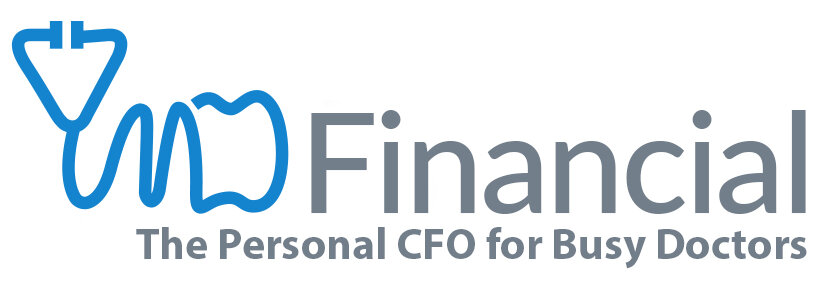As tax season approaches, we wanted to share an annual reminder about some important tax information written by Financial Advisor and CIO, Josh Lantz, CRPC©. The article is pertinent to this tax season as it covers the most common tax filing mistakes we see doctors and their families make.
Did you know that November is long-term care (LTC) awareness month? LTC is a rough topic to discuss, but starting early can help. In today’s article, our CIO and Financial Advisor Josh Lantz, CRPC©, goes over some of the things all doctors should be thinking about to help prepare them for when they need long-term care.
In this week’s article one of our advisors, Ben Kirchner, AAMS©️, explains everything a doctor should know about term life insurance. Whether you already have life insurance or are looking to get some soon, this article is a good guide for understanding the different insurance options.
It’s that time of year again when we want to make sure our clients have checked off their financial to do lists for the year and have set themselves up for a prosperous 2026. Reach out to us if you still have items on your year-end checklist that need to be completed. Deadlines are coming up, so let us know as soon as possible if we can help complete your checklist.
The One Big Beautiful Bill (OBBB) Act created some changes in Federal student loan repayment plans. While information on this is still being released, our CIO and advisor, Josh Lantz, CRPC©, wrote an article with the latest updates for our doctors.
Doctors, have you been following the news about the One Big Beautiful Bill Act? It was signed into law earlier this month. Our CIO and Financial Advisor Josh Lantz, CRPC®, broke down the important tax implications for doctors in the following article.
We all like the feeling of getting a good deal. For some people it becomes a game. The idea of getting the same goods or services for slightly less is appealing to most. Let’s go through 15 ways to save on items you might already be spending on today.
Most of the doctors that I meet with don’t jump for joy when I bring up the topic of insurance. This is understandable, as it’s one of the few items you pay for and hope to never use. In many ways, it’s simply a piece of paper with a promise, and that sounds as thrilling as watching paint dry. However, like a house, a financial plan needs a solid foundation, or life can get interesting in the worst kind of ways. The foundation of any financial plan is income and it’s vital that it doesn't go away. Protecting the specialized income you make as a doctor, is fundamental for developing a good wealth building strategy. This is done by putting in place a quality disability insurance policy. Let’s look at how to do this successfully.
By far a doctor’s largest asset is their income. However, often this asset is neglected. Your income is what allows you to realize wealth over time.
Let’s assume a doctor goes into practice at age 35 and retires at age 65. That provides them 30 years of earnings. To keep things simple, I’m showing numbers before adjusting for inflation, earnings growth, and taxes.
As a financial advisory firm, we talk to hundreds of doctor households each year and see their tax returns. On occasion, we spot issues with their taxes. As you prepare for filing your taxes, we thought you’d want to know the common tax missteps we see with doctors.
We thought we’d give a quick update on the state of Public Service Loan Forgiveness (PSLF). So much has changed over the last few years; it’s worth going through a quick timeline.
During the summer of 2024 stock markets were in the news. The Standard and Poor’s 500 (S&P 500) fell about 6% between July 31st and August 5th of this year. The news media was quick to panic—they always do.
Going into practice is a busy time in the career of a young physician or dentist. We get lots of questions about what they can do during this time to start off on the right track. One key to success is reviewing the data behind the decisions we make. In medicine, this could mean recognizing that your blood pressure is too high, therefore you change your\habits or medications to improve your overall health. Similarly, doing a “financial check-up” can ensure long-term success with money. The most pivotal time for a checkup is during the transitionary period of going into practice. We’ve broken the financial check-up into six key categories:














